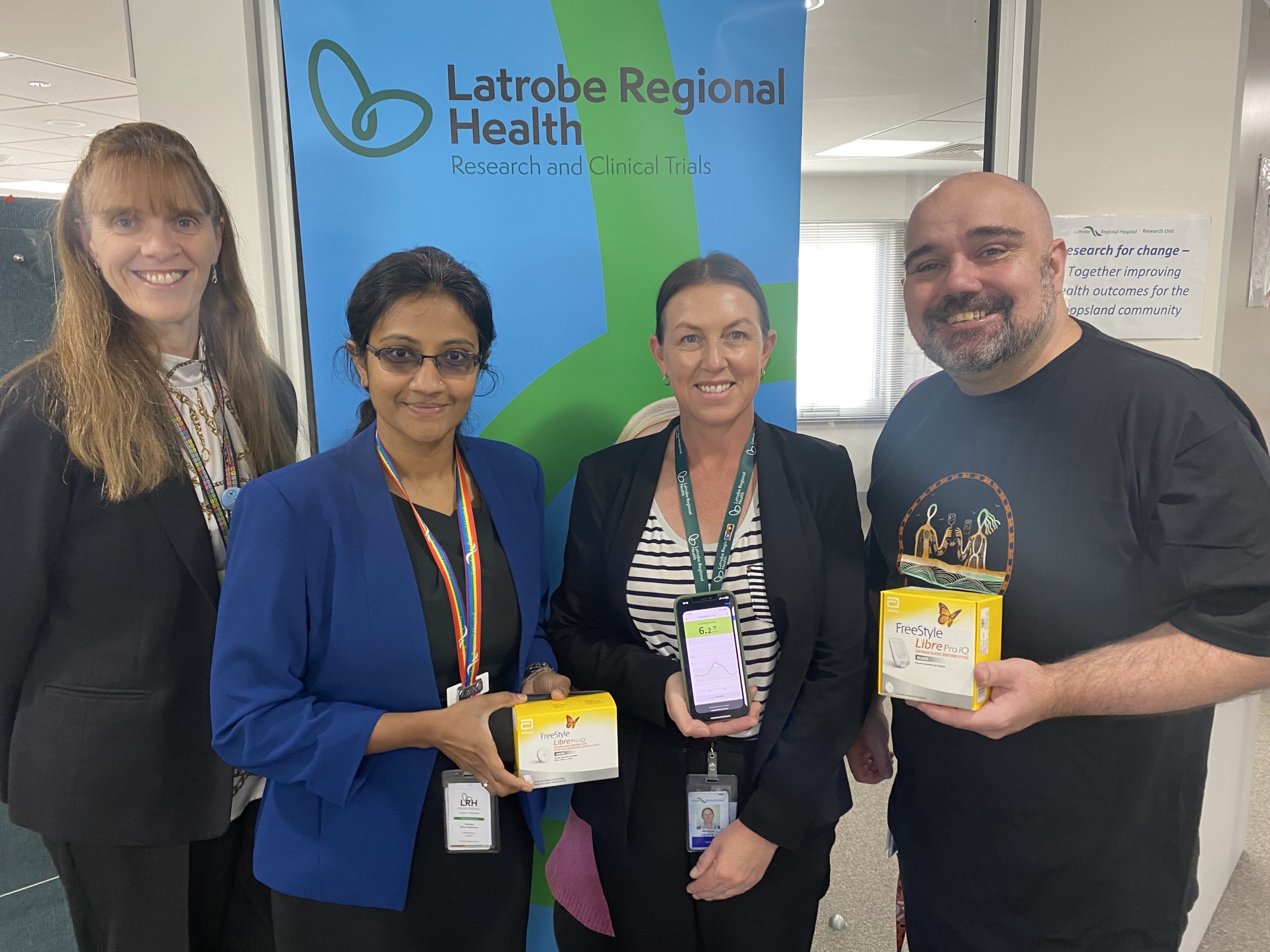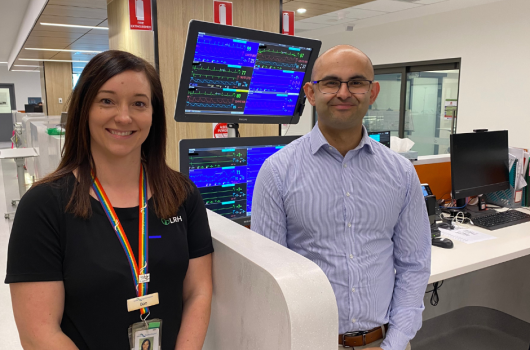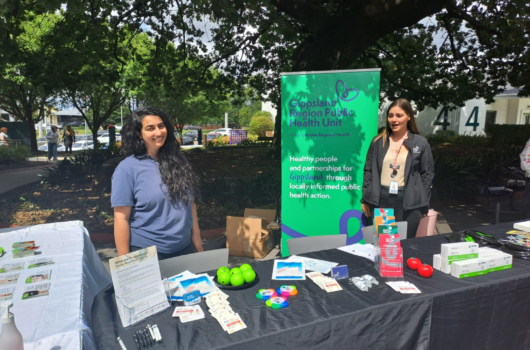Australia first diabetes trial at LRH

The high incidence of diabetes in First Nations People is the focus of an Australian-first clinical trial recently opened at Latrobe Regional Health (LRH).
Aboriginal and Torres Strait Islander people are up to four times more likely to have diabetes or pre-diabetes than non-indigenous Australians.
The long-term implications of diabetes include increased risk of heart attack and stroke and kidney disease, as well as loss of or impaired vision and serious loss of function in the lower limbs.
“Managing diabetes relies on measuring glucose levels in a person’s bloodstream,” LRH Aboriginal Health Unit Manager, Troy Jennings said.
“This can be done either with finger prick blood tests as is the practice commonly used, or through a patch worn on the skin which can measure the glucose levels continuously and then sends the data to a mobile device such as a phone or other monitor in real time.
“The patient gets immediate feedback and can take medication if their glucose levels are too high or eat something if too low, thus avoiding a dangerous peak or trough in their glucose levels,” Troy said.
The Flash GM (Glucose Monitors) Trial uses the skin worn patch technology and is currently recruiting at LRH from across the Gippsland region being lead at the organisation by Dr. Shree Nagendram working in collaboration with the University of Melbourne trial team
“We’re contacting local GPs as well as Aboriginal health services and putting the word out that we are keen to see local indigenous people who live with diabetes get on this trial and help us understand what difference it will make to their diabetes management,” LRH General Manager Research and Partnerships, Dr Jhodie Duncan said.
Participants in the Flash GM trial will have an initial screening meeting with medical staff before commencing the trial.
The next six months will involve follow-up appointments and ongoing support. The trial participants will also receive all the patches required for the trial as well as education sessions around diabetes.
“We know that being involved in a research program can be a bit daunting for people, so we’re determined to make sure that participants feel supported and have resources on hand to help them stay involved,” Dr Duncan said.
Given the ongoing need to improve health outcomes for Aboriginal Australians under the Closing the Gap Strategy, it’s hoped that the trial will offer an alternative care option for Aboriginal or Torres Strait Islanders with diabetes and confirm that Flash GM technology is easier for people to use and will provide better management of blood glucose levels.
“If we can help the Aboriginal community who live with diabetes in Gippsland to better manage their condition, this has many far-reaching effects and helps our mob to take ownership of their health. Better managed diabetes can mean the patient can prevent diabetes-related illness such as kidney disease, heart conditions, loss of sight and reduced blood flow to the lower limbs which in the most serious cases can lead to amputations,” Troy said.
More information about the Flash GM Trial and can be found online at lrh.com.au/research-clinical-trials
Pictured L-R Dr Jhodie Duncan, General Manager of Research and Partnerships, LRH, Dr. Shree Nagendram , Principal Investigator Flash GM Trial, Kylea Williams, Clinical Trial Coordinator LRH, Troy Jennings, Manager LRH Aboriginal Health Unit.






